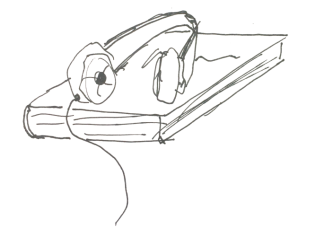Disclaimer: I have no special knowledge or training about healthcare systems. In some answers below I try to describe or summarize Keith Smith’s views, but I may misunderstand or unintentionally misrepresent his views. I don’t necessarily share or endorse his views; just trying to at least understand them a bit more deeply.
Link to EconTalk episode:
https://www.econtalk.org/keith-smith-on-free-market-health-care/
Link to EconTalk Extras page:
https://www.econtalk.org/extra/fifty-percent-off-of-what/
One
Why would insurance companies not want to deal with the Surgery Center? If the surgery center can openly advertise an authentic price (a price which covers cost, makes profit, pays highly-trained doctors, and is still way below prices in insurance-based systems), then there’s little wiggle room for insurance companies to inflate their listed prices and to keep the difference. They would still get their cut, but it would be smaller because consumers would actually be able to notice the insurance company price compared to a real price (currently, there is no transparent pricetag for procedures in most hospitals).
Two
At the Surgery Center, surgeons are paid a set amount for a given procedure. They are not paid by the amount of surgical supplies used, or the number of tests they order, or the number of consultations, etc., which might incentivize a physician to schedule more of these things unnecessarily.
The Surgery Center has disintermediated their care in the sense that they’ve excised a middleman: we diagnose and tell the price, you purchase the service. There isn’t an additional layer of finding a provider who’s “in-network”, mystery about what types of procedures are covered, what actual final costs may be for a given course of treatment, etc.
Relative Value Units are a method of weighing how much a given medical procedure is worth (which can later be converted into a dollar amount), by considering the time, expertise, and expenses involved. This means that a physician could game this metric by doing high RVU activities, instead of focusing on those that lead more directly to patient outcomes. Presumably, the idea is that RVU and patient outcomes would naturally be aligned or correlated, but it’s hard to design incentives.
If a hospital invents an artificially high price for a procedure, when an insurer (or patient) only pays a small percentage of that price, the hospital can say that they were serving people without means to pay, and can be reimbursed for serving the poor, or they can maintain their status as non-profits. Due to the metrics that are being tracked, hospitals may be incentivized to make the gap between their “price” and what people pay to be larger. It can be good for the hospital if their bills are totally unaffordable.
The implication here is that hospitals are freer to invent prices that businesses in other sectors, given the opacity of prices due to lack of information, asymmetric information, and lack of market dynamics). Another implication is that hospitals’ incentives are not matched with the public’s incentives.
I’m sure there are endless reasons why it’s difficult to open a new hospital (need to bootstrap a reputation, recruit highly trained staff, purchase and maintain tons of complex machinery, have tons of laws and standards to meet, etc), but in this discussion they focus on “Certificate of Need”, which is government approval of the opening of a new facility based on it being needed by the community. The real kicker is that existing hospitals can exert pressure to say that their potential competitors do not need to exist. Wikipedia summarizes this problem:
Since new hospitals cannot be constructed without proving a “need”, the certificate-of-need system grants monopoly privileges to already existing hospitals. Consequently, Alaska House of Representatives member Bob Lynn has argued that the true motivation behind certificate-of-need legislation is that “large hospitals are… trying to make money by eliminating competition” under the pretext of using monopoly profits to provide better patient care.
Three
Maximizing revenue means doing everything you can to find billable procedures that provide the best ROI. Maximizing value means providing the best patient outcomes for money spent. Smith points to transparency, customer reviews, the fact that people are willing to travel, and that people will forgo their own insurance coverage to get care at his center as evidence for their maximizing value, and not maximizing revenue.
Four
Traditional hospitals may be paid by the supplies that they use (supplies used are taken as a proxy for the services provided, and the value those services represent). But the Surgery Center pays for all their materials directly, so are incentivised to monitor and use supplies only as necessary. Of course you could argue that they are tempted to skimp, but the fact that so much is riding on their reputation pushes back on this temptation.
Five
First, Smith argues that our current health system isn’t serving the poor. Currently, the poor are treated as a single demographic, and then an effort is made to provide service to this demographic, but these programs clearly aren’t working.
Second, he argues that market competition will bring down costs while maintaining quality of care, as it does in other sectors. The current inflated prices (see cost of aspirin/bandaids/etc inside of hospitals versus their prices at a grocery store) are especially hard on the poor. Bringing down costs is important for that reason.
Thirdly, he believes charity is better than government support for medical care of the poor, because charity does not run into the problems of intermediaries and bad incentives discussed above.

